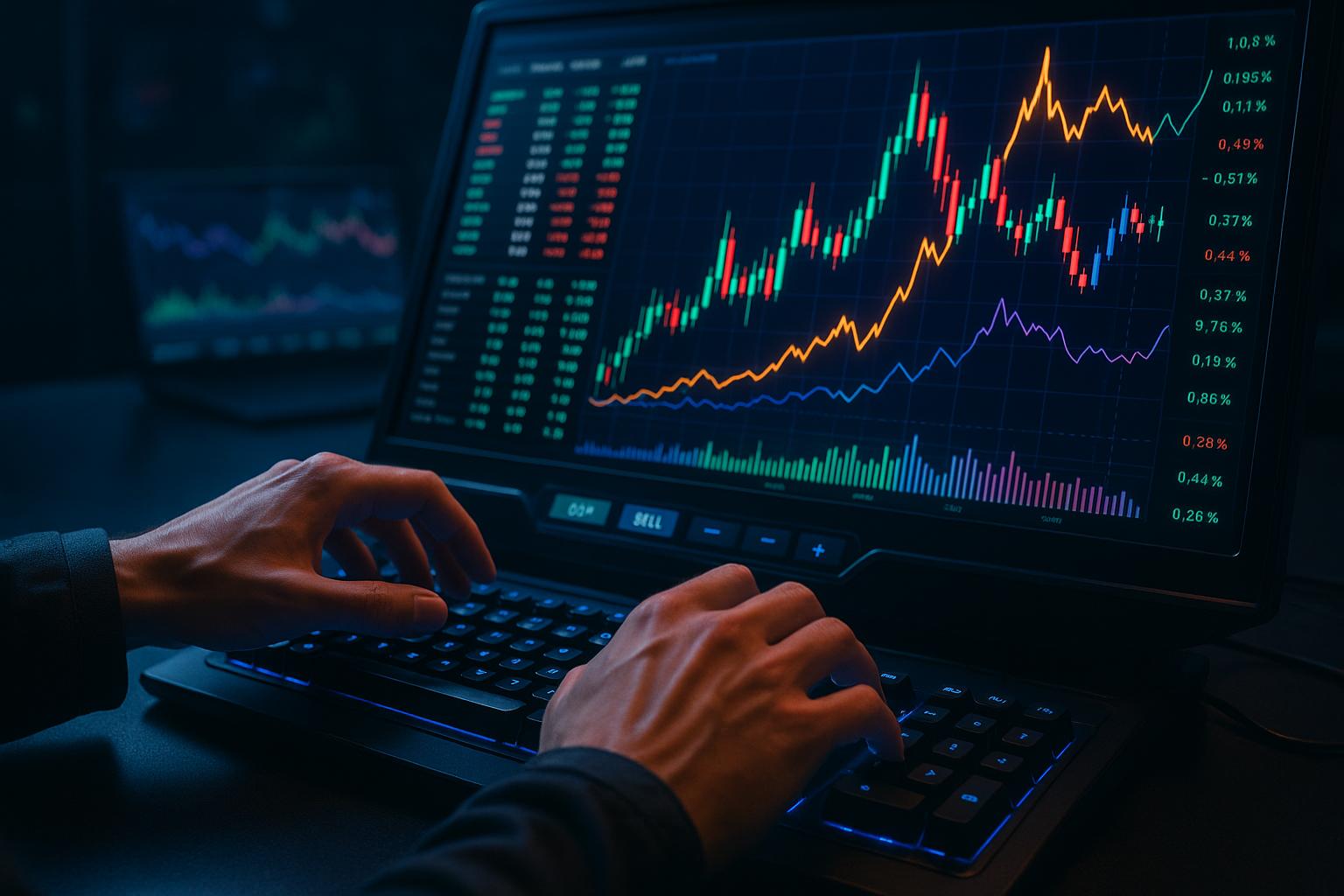Prediction markets, once seen as niche or exotic betting platforms, are rapidly gaining traction as a significant new asset class within mainstream financial markets, attracting keen interest from Wall Street, Silicon Valley, and major technology companies. According to Bernstein, the US investment bank, this burgeoning market is entering a phase of robust expansion driven by easing regulatory environments and integration into retail finance, with established platforms like Robinhood and Coinbase leading the way.
Robinhood reported remarkable growth in its prediction market segment, with trading volumes rising to about $2.3 billion in the third quarter of 2025 and surging further to $2.5 billion in October alone. This rapid expansion suggests strong user engagement and a widening portfolio of event-based contracts spanning sports, economics, politics, and culture. Financial data indicates that these volumes could translate into approximately $300 million in annual revenue for Robinhood, highlighting prediction markets as a promising new revenue source for the firm. The company’s CEO has voiced enthusiasm for this growth, underscoring prediction markets’ potential as a transformative asset class.
Coinbase, the US's largest cryptocurrency exchange, has also positioned prediction markets as a core pillar of its ambitious “Everything Exchange” strategy. In its recent third-quarter earnings, Coinbase announced plans to launch prediction market products, complementing its offerings in cryptocurrencies, tokenized stocks, and stablecoins by the end of the year. Bernstein’s analysis gave both Robinhood and Coinbase shares an “over-market rate of return” rating, reflecting optimism about the companies’ futures built partly on their prediction market ventures.
The technology sector’s engagement with prediction markets marks another key turning point. Google recently integrated real-time prediction market data from blockchain-based platforms Polymarket and Kalshi directly into its search engine and Google Finance. This breakthrough allows users to access live market probabilities and historical trends for major political and economic events through natural language queries, such as asking about the probability of a US recession in 2025. This unprecedented step by a tech giant not only enhances Google's AI-driven financial insights but also represents a milestone in legitimising these blockchain-based platforms, which have often operated in regulatory grey areas outside the US.
This trend extends beyond major exchanges and tech firms. Interactive Brokers launched its own prediction market platform, ForcastEx, and even social media company Truth Social, backed by former President Donald Trump, has announced plans for a prediction market called Truth Prediction. These developments underscore broad-based institutional and retail interest in harnessing the crowd wisdom embedded in prediction markets.
Investors are increasingly using prediction markets to wager on simple yes/no contracts involving economic indicators like inflation rates or Federal Reserve interest rate decisions. Bernstein highlights that this trend reflects a desire among mainstream investors to incorporate market-generated probability signals into their portfolios, helping to distinguish genuine information from noise in an environment of political polarization and the overwhelming spread of AI-generated content.
Despite this promising outlook, prediction markets remain in their infancy. Their trading volumes, while growing, are still modest relative to traditional financial markets, and a significant share of bets is concentrated in sports-related events. Regulatory challenges persist, especially around political contracts, which remain tightly regulated or restricted due to their sensitive nature. Some companies operating prediction markets have faced legal hurdles, further complicating the path to wider adoption. Bernstein cautions that while the core infrastructure and regulatory framework are advancing, liquidity constraints and regulatory minefields still pose barriers.
Nevertheless, the overall market potential appears expansive as prediction markets begin to extend beyond their original role as state-regulated betting platforms into mainstream financial services. With major financial institutions, leading tech firms, and emerging platforms actively investing in and expanding this sector, prediction markets may soon become a staple tool for investors seeking real-time, crowd-sourced insights into political, economic, and cultural developments.
📌 Reference Map:
- [1] (Maeil Business Newspaper) - Paragraphs 1, 2, 3, 4, 5, 6, 7, 8
- [2] (Blockchain News) - Paragraph 2
- [3] (Coin360) - Paragraph 4
- [4] (Holder.io) - Paragraph 4
- [5] (TradingView) - Paragraph 2
- [6] (InGame) - Paragraph 2
- [7] (GamesHub) - Paragraph 2
Source: Noah Wire Services
